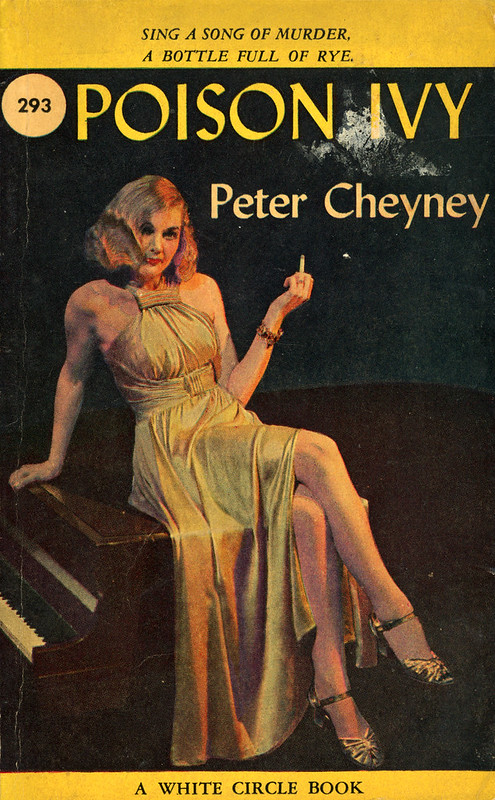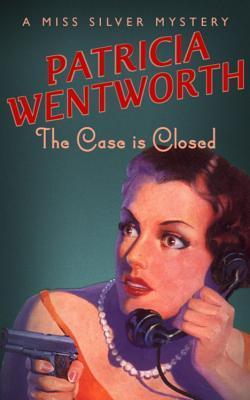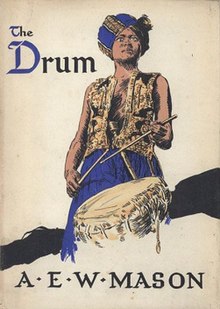I read a number of mysteries for the 1937 Club. Here they are in no particular order:
The Elephant Never Forgets by Ethel Lina White

The time is the Nineteen Thirties and Anna Stephanovich finds herself in Russia just when the Stalinist purges are beginning and everybody seems to be on the edge. Anna, who actually is an English woman and who had taken her Russian step-father’s name because of their love for each other, is in Russia to see for herself the proletarian experiment. More specifically, she had fallen in love with Otto, the editor of a Russian journal, and followed him to Russia. When the novel opens, she has just broken up with Otto as he is involved with another girl, Olga. Anna decides to leave Russia but then finds out that Otto has been arrested for anti-party activities. She loses her money as the office, where she had kept the money, is ransacked. When she writes to her uncle in England to send her the money, he does so but as he writes her original name Anna Brown on the moneyorder, the post office refuses to hand over the cash to her. When finally she does get it, her friend’s family turns up and insists she go with them. But then more complications ensue, some of them to do with Conrad Stern, a man whom she had met while he was working with Otto. Things turn desperate. People disappear suddenly and are never heard of again. Phones ring and are not answered. The Public Prosecutor (so over the top and figure of some Jacobean drama rather than a twentieth-century mystery) roams the street looking for people to shoot. The purges gain momentum. Will Anna be able to get out?
This was a wild ride. White does the atmosphere very well. The disappearances, the spies in the midst, the feeling that you might be picked up at any time, the feeling of distrust, the suspicions, the ever-present dread and the ever-ticking clock… all this made for some tense reading and there were times when I wanted to simply scream for some relief. The end though was pretty abrupt and could have been done better. Despite that, my favourite of all of White’s books read till now barring the superlative Some Must Watch.
First Line: As Anna looked through the double windows of her bedroom at the hotel, she became suddenly conscious of the passage of time.
*
The Case of Alan Copeland by Moray Dalton

Lydia Hale, niece of Reverend Perry, decides to go to her uncle’s village while recuperating. Her uncle is cold towards her, not welcoming since he finds that a visitor would disturb his routine. However, Lydia likes the village and falls in love with Alan Copeland who runs a small chicken-farm. Alan is trapped in an unhappy marriage with the much older Mabel. The two lonely people get close to each other but when Lydia returns to London, she finds that she is carrying Alan’s baby. Even as she debates whether to inform him about it, Alan comes to London to give her the news that his wife was taken ill suddenly and is dead. The two marry but soon tongues start wagging… Has Lydia done the right thing in marrying Alan?
This was my second read of Dalton and I liked it so much that I immediately read another of hers, The Kneeling Woman. However, neither that nor the first Dalton that I read, Harriet Hall, is as enthralling and engrossing as this. Some rich characterization and a good court room drama kept me hooked throughout.
First Line: Emily Gort was having tea with Mrs. Copeland, tea and a cosy chat.
*
Case Without a Corpse by Leo Bruce

This is the second book in the Sergeant Beef series and had long been on my wishlist. Beef who has been promoted after successfully completing his first case is in a bar when a young man, Alan Rogers, known to be a hothead barges inside and declares that he has committed a murder. Before the astounded gathering, he takes a bottle of poison from his pocket, gulps it, and falls dead. So we have a murderer and a confession but no corpse because however high and low the police search they are unable to find a dead body. The Scotland Yard sends one of its inspectors and though he makes progress even he is unable to come up with a corpse. Beef, of course, finally does solve the case.
I found this case better than the first one. Though I had guessed the solution, it was still satisfying when Beef finally apprehended the criminal. The only thing I did not like was the pitting of the Yard inspector against the village sergeant. In the first case, Beef came up trumps against three renowned detectives (Poirot, Whimsey, and Father Brown) this time it was the Yard inspector, modelled on Inspector French and others of that ilk. It was kind of unnecessary, tbh, especially as you know thruout that Beef would upstage him. However, even if I did not like this aspect of the novel, I quite like the humour present in it otherwise, esp. the Inspector’s ire against a constable who had the temerity to have the name Galsworthy and these wonderful remarks by the Watson of the story:
It is not often that the mere chronicler of crime gets a thrill. His work is usually to attend, as unintelligently as possible, the dreary post-mortems, and to listen, without too much acumen, to the elucidation offered by the masters. But during those few minutes I knew all the excitements of the chase. I was about to do my own part—and an important part it would be.
I WAS determined not to be left out of the case now, even if Detective-Inspector Stute was going to take it up. So that next morning I went round to the police station, asked for the Sergeant, and was shewn in to the office in which he and Stute were already in conference.
There was, of course, no reason why I should be admitted, but my reading of detective novels, which had been considerable, had taught me that an outsider, with no particular excuse, was often welcomed on these occasions, especially if he had the gift of native fatuity, and could ask ludicrous questions at the right moment, so I hoped for the best. Beef introduced me without explanation, Stute nodded amicably and indicated a chair, and I was at home. That, I thought, is one good thing that writers of detective novels have done—taught Scotland Yard to admit miscellaneous strangers to their, most secret conclaves.
First Line: It was, I shall have to admit, a dark and stormy night.
*
Serenade by James M. Cain

My second read of author James M. Cain, Serenade is really a book that you cannot discuss without spoilers. Briefly, it is a first-person narrative by John Howard Sharp, a down-at-his-heels opera singer who is somehow scraping a living singing in seedy clubs in Mexico, having lost his voice. He runs across Juana, a Mexican-Indian prostitute and falls in love with her. She tries to enlist his help in opening a brothel, he instead takes her to the US where he strikes lucky and becomes a Hollywood success. However, his heart is in opera and so he chucks his career in Hollywood and again becomes a successful singer, his voice having come back. But then his past cathches up with him in the reappearance of his old associate, Winston….and Johnny is on the verge of losing everything again.
All this does not seem so crazy but the explanations: why Johnny lost his voice, why he regained it, are really crazy. I had to re-read certain passages just to understand whether what I was reading was really there. Also the amount of detail about operas and the singers…I have never come across such details in any novel let alone a hard-boiled one. What was Cain thinking? Despite all this, I do not hate the novel. Even now, as I write this, I am laughing at the sheer absurdity of it. Have you read it?
First Line: I was in the Tupinamba, having a bizcocho and coffee, when this girl came in.
*
Poison Ivy by Peter Cheyney

This is the second of Lemmy Caution’s adventures, set in a time when Caution was still in the FBI. The novel begins when Caution is told to go to New York where another agent Myras Duncan would meet him and give him the details of the case he is to investigate. Lemmy does so and Duncan informs him that a lot of gold is to be transported to the UK but the mob has come to know of it and is planning to rob it. Lemmy has to find out how they will go about it. Soon afterwards, Duncan is murdered. But at the same time and in the same nightclub, another man Willie too is shot to death. Lemmy believes the two killings are connected and asks his friend the crime reporter, Jerry ‘Hangover’ Tiernan to help him with the case even as he finds himself attracted to Carlotta, the dancer at the night club whom Hangover dubs Poison Ivy.
I did not like this book as much as the others I have read of Cheyney. One twist took me by surprise but the other I had kind of guessed as I have seen it being used in the other two novels of his that I have read. I will most probably read more of Cheyney but am doubtful whether I will be reading more of Lemmy Caution as he has begun to bore me.
First Line: Telegraph Decoding Room….
*
The Case is Closed by Patricia Wentworth

Another second case, making me wonder as to how many characters solved their second case in 1937. This time it is Miss Silver and she returns to action after a gap of almost a decade. Wonder why there was such a huge gap between the first and the second book. Did Wentworth want to drop the character because in this book also Miss Silver is not really the only detective. Most of the time we follow young Hilary Carew as she gets into tight situations and roams around the countryside to prove that her cousin Geoffrey Grey is innocent of the murder for which he has been sentenced to life imprisonment. Her ex-fiancé Henry brings Miss Silver into the case but she remains in the background. With the real murderer pretty obvious, it is not too much of a mystery but the young people are likable and so the book is good for one read.
First Line: Hilary Carew sat in the wrong train and thought bitterly about Henry.
*
The Drum by A.E.W. Mason

And finally, one set in my part of the world.
The Khan of Tokot reigns over his small kingdom somewhere near the North-West Frontier province of British India and Afghanistan, in the Hindu Kush mountain range. The Khan maintains friendly relations with the British but has always been an independent sovereign. Now, however, he has asked the British to set up a residency in his kingdom. The Governor of Frontier province asks one of his men, the recently-married Frank Carruthers to go there on this first mission as he speaks the language and has been there many a time. He also asks Carruthers to find out about the legend of the Yeduni drum of Tokot which starts beating by itself at times and anybody who tries to see the fairy drummer is visited by death. When Carruthers visits the kingdom, he finds a tense situation. The Khan, Sher Afzul-ul-Mulk, faces a rebellion led by his own younger brother. Carruthers also hears the drum and guesses that it is being played by Shuja-ul-Mulk, the young son of the Khan. Soon there is a coup. The Khan is killed and his son finds refuge with the Carruthers in Peshawar. Later, when Frank sets out to take permanent residency in Tokot, Shuja comes to know of a plot against him. Will he help his benefactor or let the plan unfold which will help him in regaining his kingdom?
This is a good adventure yarn and the only thing that I think could have done away with was a certain killing. It was totally not needed, not even as a rite of passage.
First Line: Captain Frank Carruthers, lately transferred from the 20th Punjab Infantry to the Political Department, went home upon long leave, where nature in its ordinary course startled him, humbled him and lifted him beyond the stars.
*
Thanks to Karen and Simon for hosting the event. If you participated too, leave the links to your reviews, I’d love to visit. It seems to have been a rich year.

These are some fine choices, Neeru. I agree with you that White was good at building tension and atmosphere. And I’m embarrassed to admit I have yet to read Dalton. I really must! James M. Cain wrote such great noir, I think and Wentworth wrote some find stories, too. Overall, a good collection!!
LikeLike
Thanks Margot. Keen to read more of Cain now despite the absurdity of Serenade. If you read Dalton, I’d love to know your views.
LikeLiked by 1 person
Oh my gosh, you’ve been busy! I’m so glad British Library are reprinting Ethel Lina White, so hope they’ll include the one you mention.
LikeLike
1937 was just a wonderful year. There were so many that I could not read. I hope that Ethel Lina White does get republished. She is one of my favourite authors.
LikeLike
Wow! You’ve been reading up a storm! I’ve read about a dozen Peter Cheyney paperbacks over the years and found that Cheyney is an uneven writer. You’ll read a couple of good novels, then a couple of duds. I must say that cover on POISON IVY is better than the novel, but I much prefer the comic book character Poison Ivy who battles Batman.
LikeLike
You reminded me of Batman and Robin in which Poison Ivy makes an appearance. OMG!!! Just what were the makers thinking🙄🙄😀😀
LikeLike
Suspense is the heartbeat of the unknown, pulsing with uncertainty and excitement.
LikeLike
Welcome to the blog. Yes, absolutely.
LikeLike
Incredibly impressive! What a wonderful range of mysteries – thank you for taking part!!
LikeLike
Thank you for hosting it, Kaggsy. I could read so many books that were on my wishlist.
LikeLiked by 1 person
What a fun list. I’ve read the Miss Silver & Serenade, but only those two. Not the best volume of either author, but still fun. (Serenade *is* weird.)
I missed the whole 1937 club this time around, because I was out of town. But because it was a vacation in Italy I don’t feel too deprived… 😉
LikeLike
Oh Wow! It mush have been great in Italy. Serenade surely is the strangest book I have ever read because of some of its explanations.😀
LikeLike
Too bad I didn’t realize James M. Cain had published this book in 1937. I have really enjoyed two other books by this author.
Great list!
LikeLike
Thanks. If you ever get to Serenade, I would love to read your views.
LikeLike